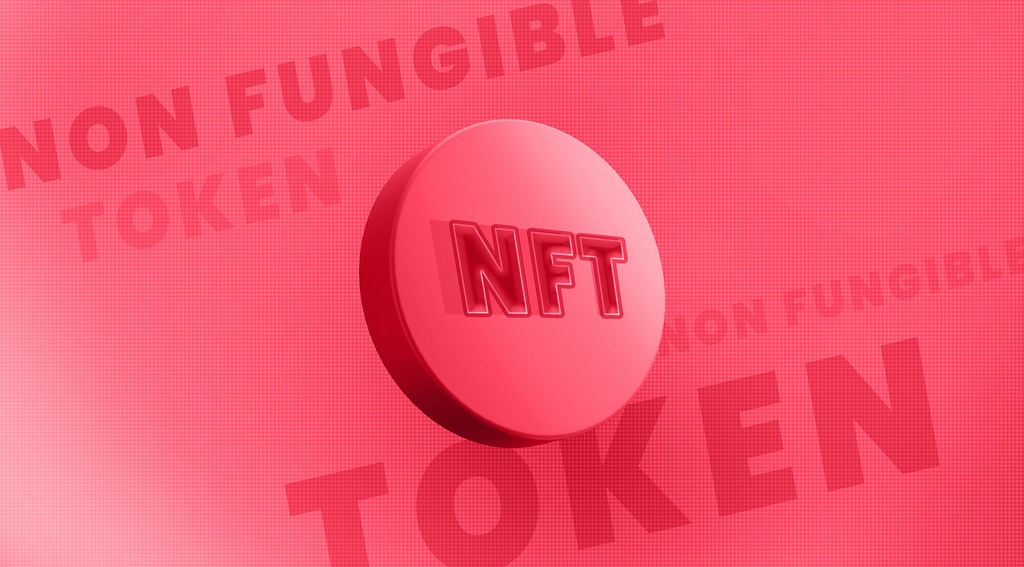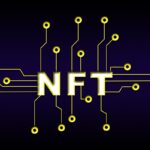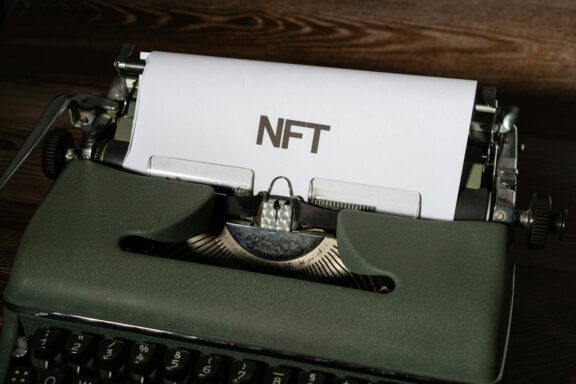Defining NFTs
NFTs (Non-Fungible Tokens) are unique digital assets verified using blockchain technology. Unlike cryptocurrencies like Bitcoin, each NFT is one-of-a-kind and cannot be exchanged for an identical item. NFTs have become increasingly popular for digital art, collectibles, and even virtual real estate, offering creators and collectors new ways to engage with digital ownership.
The History of NFTs: A Digital Revolution
NFTs began gaining traction around 2017, but it wasn’t until recent years that they exploded in popularity. This growth has been driven by the intersection of blockchain technology, the digital art scene, and the broader cultural shift towards online communities. The rise of NFTs has changed how we think about ownership in the digital world.
How Do NFTs Work?
The Technology Behind NFTs: Blockchain and Smart Contracts
At the core of NFTs lies blockchain technology. Each NFT is recorded on a decentralized blockchain, ensuring ownership and authenticity. This process is managed through smart contracts—self-executing contracts that automatically enforce the terms of the agreement. This combination provides a secure and transparent way to prove ownership of digital assets.
Key Characteristics of NFTs: Why They’re So Special
NFTs are known for their uniqueness, immutability, and verifiable ownership. Whether it’s a digital artwork, virtual goods, or even music, the key feature of NFTs is their ability to prove authenticity in a way that traditional digital files cannot. This is what makes NFTs so valuable to artists, collectors, and investors alike.
The Growing Popularity of NFTs
Why Are NFTs Booming? Key Factors Driving the Growth of NFTs
The surge in NFT popularity can be attributed to several factors: social media buzz, celebrity endorsements, and a growing sense of FOMO (Fear of Missing Out). Additionally, NFTs provide an easy way for creators to monetize their digital works, bypassing traditional middlemen like galleries or auction houses.
NFT Market Trends: What’s Hot and What’s Not
The NFT market is dynamic and fast-moving. From high-profile celebrity NFT auctions to virtual fashion shows, the landscape is always evolving. Staying on top of market trends is key for anyone looking to buy or invest in NFTs. With new projects and opportunities emerging daily, it’s important to keep an eye on what’s gaining traction.
The Pros and Cons of NFTs
Benefits of NFTs: Why Creators and Collectors Love Them
NFTs offer numerous advantages, including the ability to own unique digital items without physical clutter. For creators, NFTs provide a direct way to earn from their work, with the added benefit of smart contracts that allow for ongoing royalties from future sales.
Challenges and Criticisms: What You Should Know Before Diving In
Despite their popularity, NFTs come with their share of challenges. Concerns about their environmental impact, high energy consumption, and potential for copyright issues are frequently discussed. Additionally, the volatile nature of NFT values means that investing in them can carry risks.
Blockchain’s Role in NFTs
How Blockchain Ensures Security and Transparency for NFTs
Blockchain technology underpins the entire NFT ecosystem, providing a transparent and immutable ledger for digital assets. With blockchain, you can be sure that your NFT is authentic and that its ownership history is secure. This technology helps eliminate the risk of counterfeit or duplicated digital content.
The Impact of NFTs on Art and Entertainment
NFTs Revolutionizing Art Ownership
NFTs are reshaping the art world by enabling digital artists to sell their work directly to buyers. Through NFTs, artists can receive royalties from secondary sales, creating a new, more sustainable revenue stream. The ability to connect directly with fans and buyers has democratized art ownership and opened up new possibilities for creators worldwide.
NFTs in the Entertainment Industry
From music albums to iconic movie moments, NFTs are finding their place in the entertainment industry. They offer new ways for artists, filmmakers, and musicians to monetize their work and connect with fans. NFTs also provide a novel way for creators to sell limited-edition digital items and exclusive content, further engaging their audience.
Navigating the Legal and Ethical Challenges of NFTs
Intellectual Property Rights and NFTs
As NFTs become more mainstream, intellectual property rights have become a hot topic. Artists, collectors, and NFT platforms must navigate complex copyright issues to ensure that the creators’ original work is respected and protected. It’s essential to understand how copyright law intersects with digital ownership in the NFT space.
Regulatory Challenges: What Are the Legal Implications of NFTs?
The NFT market is still largely unregulated, which presents challenges around investor protection, taxation, and potential for money laundering. As the NFT ecosystem grows, regulatory bodies are working to catch up. Understanding the legal landscape is crucial for both creators and investors.
The Future of NFTs: Trends and Opportunities
Emerging NFT Use Cases: Beyond Art and Collectibles
NFTs are expanding into new industries, from virtual real estate to digital fashion. As the technology continues to evolve, more creative and innovative use cases are expected to emerge. Industries like gaming, education, and even healthcare are beginning to explore how NFTs can drive value in their respective fields.
Growth Potential for NFTs: What Lies Ahead
The future of NFTs is bright. With advancements in blockchain technology and an increasing interest in digital ownership, the NFT market is poised for continued growth. As mainstream adoption increases, NFTs could revolutionize how we think about assets, ownership, and value in the digital economy.
Conclusion: Reflecting on the Impact and Future of NFTs
NFTs are more than just a trend; they represent a fundamental shift in how we think about ownership and value in the digital world. As the technology behind NFTs continues to evolve, we can expect even more opportunities for creators, collectors, and investors to innovate and capitalize on this exciting new digital frontier.
FAQs About NFTs
1. What makes NFTs different from cryptocurrencies like Bitcoin?
NFTs are unique, indivisible digital assets, while cryptocurrencies like Bitcoin are fungible, meaning they can be exchanged on a one-to-one basis.
2. Are NFTs environmentally friendly?
The environmental impact of NFTs has been a point of concern, particularly because of the energy consumption required by certain blockchains like Ethereum. However, more eco-friendly alternatives are emerging.
3. How can I create or purchase an NFT?
Creating an NFT typically involves minting your digital content on a blockchain platform like OpenSea or Rarible. To purchase an NFT, you’ll need a digital wallet and cryptocurrency like Ethereum.
4. What are some common misconceptions about NFTs?
Many people believe that NFTs are just a fad, or that they’re only for the wealthy. However, NFTs are democratizing ownership in the digital space and can be accessible to anyone with an internet connection.








No Comments